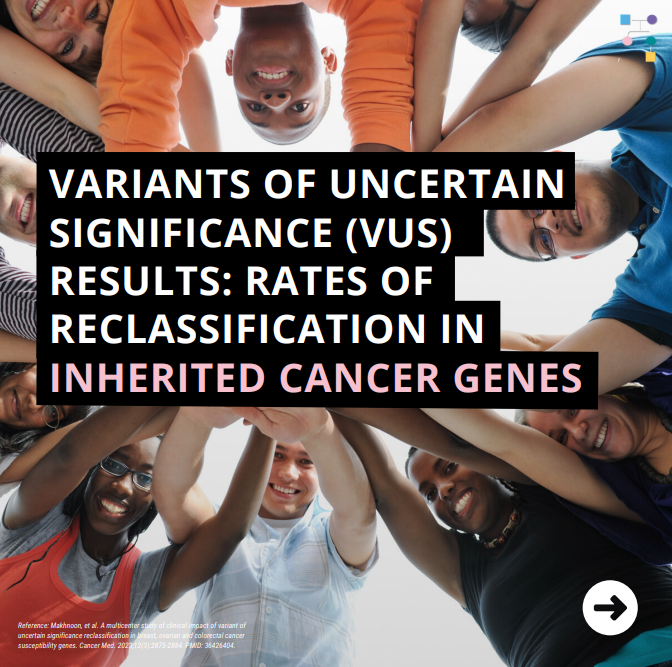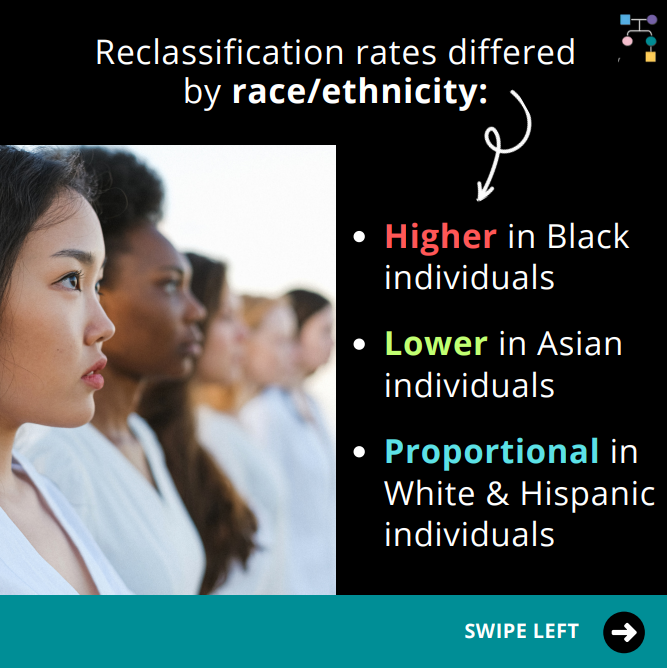



In a multicenter study evaluating reclassifications of variant of uncertain significance (VUS) results in breast, ovarian, and colorectal cancer susceptibility genes, it was discovered that of 3261 VUS results, 8.1% were reclassified. Of all the reclassified VUS results, 11.3% resulted in clinically actionable findings, and 4.6% led to changes in clinical management. The reclassification rates differed by race/ethnicity with higher rates among Black individuals, lower rates among Asian individuals, and proportional rates among White and Hispanic individuals.
Use this link to learn more: https://pubmed.ncbi.nlm.nih.gov/36426404/
Reference: Makhnoon, et al. Cancer Med. 2023;12(3):2875-2884. PMID: 36426404.
